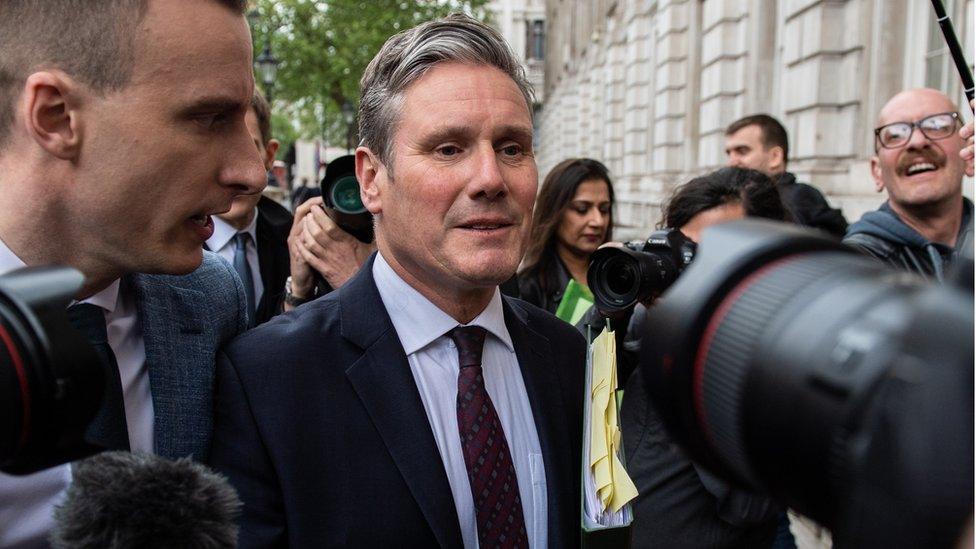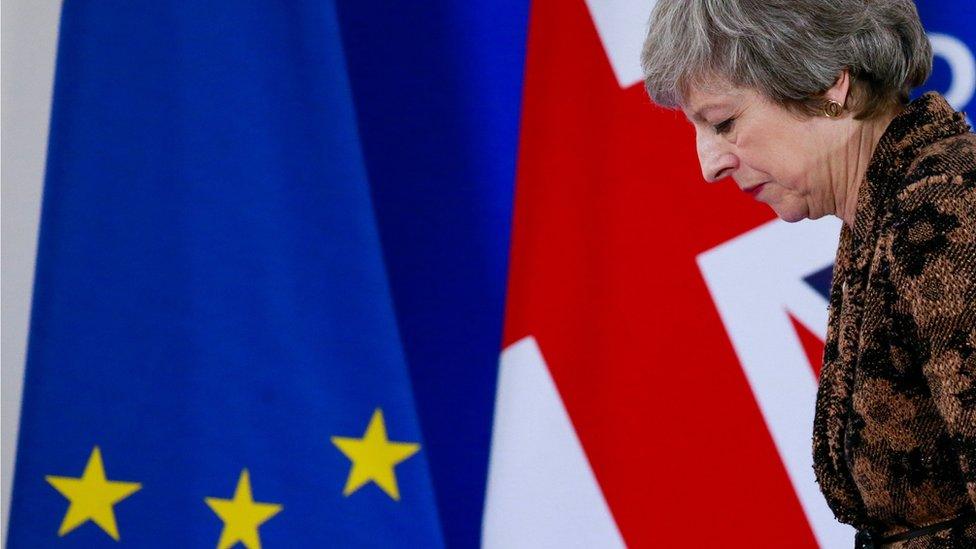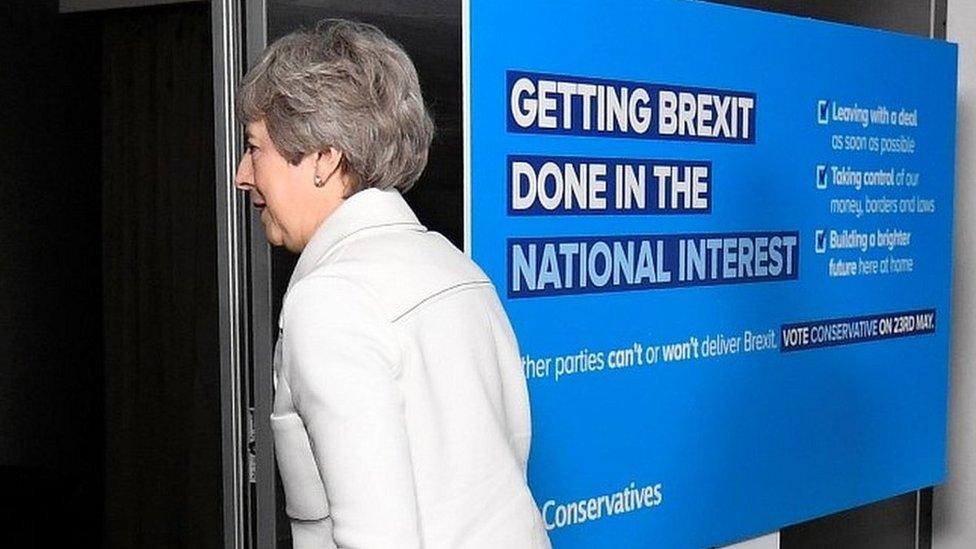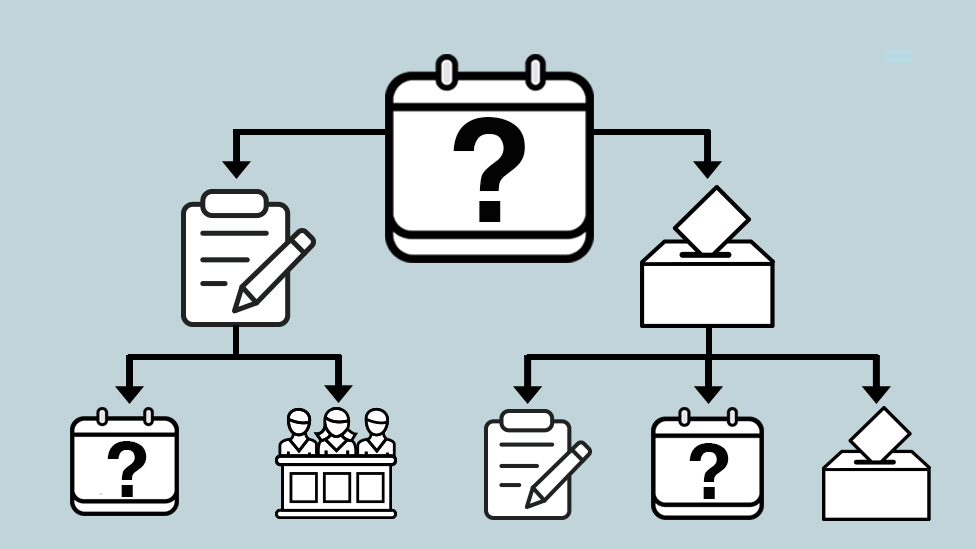Brexit: Withdrawal Agreement Bill 'should include public vote'
- Published

Sir Keir Starmer led Labour's side in the cross-party Brexit talks
The government should add a public vote to the Brexit legislation which MPs will vote on next month, the shadow Brexit secretary has told the BBC.
Sir Keir Starmer said including another referendum in the Withdrawal Agreement Bill would "break the impasse".
Talks between Labour and the government to find a compromise Brexit deal broke down on Friday without agreement.
Theresa May has said she would consider putting different Brexit options to MPs to see which ones "command a majority".
Labour's preferred plan is for changes to the government's Brexit deal or an election, but if neither of those are possible, it will support the option of a public vote.
There have been calls for giving the public another say on Brexit. One widely discussed option is for a "confirmatory vote" with the choice between accepting whatever deal the government agrees, or remaining in the EU.
Others argue any new referendum should include the option of leaving the EU without a deal.
Speaking to BBC Radio 4's Today programme, Sir Keir suggested the government should seek "further changes to the political declaration", which sets out the UK's future relationship with the EU after Brexit.
He added: "Or of course they could seek to break the impasse by putting a confirmatory vote on the face of a bill.
"But whatever happens they have to find a way of breaking the impasse. We've got five and a half months which seems like quite a long time but in reality, once we get to the summer recess, we've only got only two weeks in September and two weeks in October."

Mrs May has promised to set a timetable for leaving Number 10 following the Brexit bill vote
Brexit had been due to take place on 29 March - but after MPs voted down the deal Mrs May had negotiated with the bloc three times, the EU gave the UK an extension until 31 October.
Mrs May announced this week that MPs will vote on her EU Withdrawal Agreement Bill in the week beginning 3 June.
This will be the second reading vote on the bill, which is the key piece of legislation to implement the withdrawal agreement - the legally binding part of the Brexit deal that covers exit terms - and take the UK out of the EU.
The second reading is the first opportunity for MPs to debate the bill. If it is not passed by Parliament, the default position is that the UK will leave the EU on 31 October without a deal.
Sir Keir said Labour would vote against the Withdrawal Agreement Bill, accusing the government of attempting "an experiment" and bringing the UK to "a cliff edge".
"If that bill goes through second reading and then collapses at third reading we are then up against the cliff edge in October, which is why we've said we'll vote against that at second reading if there isn't an agreed deal before we start," he said.
He denied that would make a no-deal Brexit more likely. "I don't accept that. What we can't do is keep on buying another week at a time which is what the prime minister has been doing for months."
Talks 'torpedoed'
Discussions between the Conservatives and Labour - to see if they could come to an agreement on Brexit despite differences over issues including membership of a customs union and a further referendum - lasted six weeks before ending on Friday.
Sir Keir blamed the collapse of talks with the government on the inability to "future proof" a deal against an "incoming Tory leader" and said although the two sides had conducted the talks "in good faith", they were "a long way apart" on substance.
He said: "During the talks, almost literally as we were sitting in the room talking, cabinet members and wannabe Tory leaders were torpedoing the talks with remarks about not being willing to accept the customs union.
"In terms of the team that we were negotiating with, I'm not blaming them.
"Circling around those that were in the room trying to negotiate were others who didn't want the negotiation to succeed because they had their eye on what was coming next."
Mrs May has previously blamed the collapse on the lack of a "common position" within Labour.
It comes as a poll of Conservative members for The Times, external suggest former Foreign Secretary Boris Johnson is the favourite to succeed Mrs May.
A YouGov poll commissioned by the Times suggests Mr Johnson is the first choice for 39% of those Tory party activists who responded.
The former London mayor, who announced his intention to run earlier this week, was three times as popular as the next closest choice, ex-Brexit secretary Dominic Raab (13%).
The Conservatives jostling to be the next prime minister
Of the others, Home Secretary Sajid Javid and Environment Secretary Michael Gove were both on 9%, with Foreign Secretary Jeremy Hunt on 8% and Health Secretary Matt Hancock on 1%.
Meanwhile, Mr Hancock told the Daily Telegraph, external that Mrs May's successor as prime minister should not call a general election until Brexit is completed.
He said an early election risked losing to Labour and "killing Brexit altogether".
He added: "We need to take responsibility for delivering on the referendum result."
- Published17 May 2019

- Published13 July 2020

- Published30 July 2019

